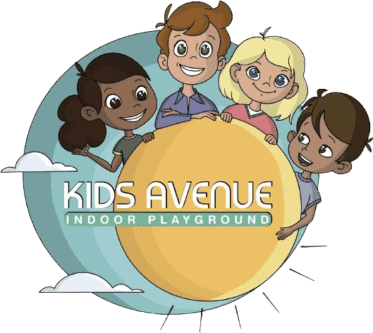When Do Kids Stop Playing on Playgrounds? Understanding Childhood Play Transitions
Playgrounds are more than just places for children to climb, slide, and swing—they’re spaces where kids build physical strength, develop social skills, and explore their imagination. From toddlerhood to preteens, the play in the playground reflects important milestones in childhood development. Yet, every parent eventually wonders: When do kids stop playing on playgrounds?
At Kids Avenue Playground, we’ve seen firsthand how children’s play evolves with age. Whether families come for open play sessions or to celebrate with a North Hollywood Birthday Package, the ways children engage with playgrounds shift as they grow. Understanding these transitions helps parents support healthy development while finding new ways to keep kids active and engaged.
The Playground Journey: Age-Based Play Progression
Children’s playground engagement doesn’t stop suddenly—it evolves gradually. Let’s break down the typical stages.
Toddler Playground Engagement (Ages 2–5)
For toddlers, playgrounds are brand-new worlds waiting to be explored. At this stage, children are developing motor skills and confidence in movement. Slides, swings, climbing structures, and soft play zones are perfect for strengthening balance and coordination.
Physical Growth: Gross motor skills flourish as kids learn to run, climb, and jump.
Social Development: Early sharing, taking turns, and parallel play emerge.
Imagination: Pretend play starts to appear, with kids using playground equipment as castles, spaceships, or forts.
Parents often choose the Indoor Playground in North Hollywood for this age group because it provides a safe, padded, and weather-proof environment. Indoor play ensures little ones can explore freely without the risks of uneven ground or unsafe equipment.
Early Childhood Playground Interactions (Ages 6–9)
By early elementary years, children are more confident in their movements and begin to engage in group activities. The playground becomes less about discovery and more about structured games.
Peer Play: Tag, hide-and-seek, and group challenges dominate play sessions.
Problem-Solving: Kids create their own rules and negotiate fair play.
Competition: Friendly races or who-can-climb-highest challenges appear.
At this age, playground visits often align with social gatherings like birthday parties. Parents love the flexibility of the Northridge Birthday Package, which allows kids to enjoy active play with friends in a supervised, themed setting.
Preteen Playground Transitions (Ages 10–12)
Around the preteen years, many children begin to show less interest in traditional playground equipment. This doesn’t mean they stop playing altogether—it simply means play takes on new forms.
Shift in Interests: Sports, creative hobbies, and technology start to compete for attention.
Social Dynamics: Friendships take center stage, with kids seeking spaces where they can socialize more than climb or swing.
Independence: Preteens may prefer structured programs, clubs, or team-based activities over playground free play.
However, indoor options like Kids Playground in Northridge remain appealing for families with multiple children. While older siblings may gravitate toward sports or games, younger children can still enjoy classic playground fun.
Factors Influencing Playground Interest Decline
The age at which children stop playing in playgrounds varies based on several factors:
Personality: Adventurous kids may love playgrounds longer, while introverted children may transition earlier to creative or solitary activities.
Peers: If friends still enjoy the playground, kids are more likely to continue playing.
Environment: Safe, engaging spaces like the Indoor Playground in North Hollywood often extend the appeal of playgrounds.
Alternatives: Access to sports teams, art classes, or digital entertainment can influence when kids move on from playgrounds.
Ultimately, the transition is gradual, not abrupt. Parents can help guide kids toward healthy alternatives while celebrating the developmental milestones achieved through playground play.
Why Playgrounds Still Matter for Older Kids
Even as children grow out of traditional slides and swings, the playground environment still offers value. For older kids, playgrounds can serve as:
Meeting Spaces: Social hubs where preteens gather.
Fitness Zones: Opportunities to stay active through climbing walls or obstacle courses.
Family Connection Points: Shared play with younger siblings strengthens family bonds.
This is why many families continue to explore Birthday Party packages that cater to both younger and older children. Kids Avenue Playground designs events that balance fun for all ages, ensuring everyone feels included.
At Kids Avenue Playground, we make these years extra special. From our Indoor Playground in North Hollywood to our Kids Playground in Northridge, families can enjoy safe, fun, and developmentally appropriate play for every stage. Whether you’re planning everyday fun or celebrating with a North Hollywood Birthday Package, a Northridge Birthday Package, or our custom Birthday Party packages, we’re here to make playtime unforgettable.
FAQs
1. At what age do most children lose interest in playgrounds?
Most kids begin to show less interest in traditional playgrounds around ages 10–12, though it varies by personality and environment.
2. How can parents encourage continued physical activity?
Introduce sports, dance, or family hikes as alternatives. Indoor play areas also keep kids active year-round.
3. Are outdoor playgrounds still important for older children?
Yes, outdoor play remains valuable for physical health and social interaction, even if older kids play differently.
4. What alternative activities replace traditional playground play?
Team sports, creative clubs, and indoor structured activities often take over as children transition.
5. How does playground engagement differ by child’s personality?
Outgoing kids may stay longer in group playground play, while reserved children may prefer quiet activities or creative pursuits earlier.
Closing Thoughts
Childhood is a journey of evolving interests, and playgrounds are just one chapter in that story. While kids may eventually stop playing in the same way they once did, the lessons learned—teamwork, creativity, and resilience—stay with them for life.
